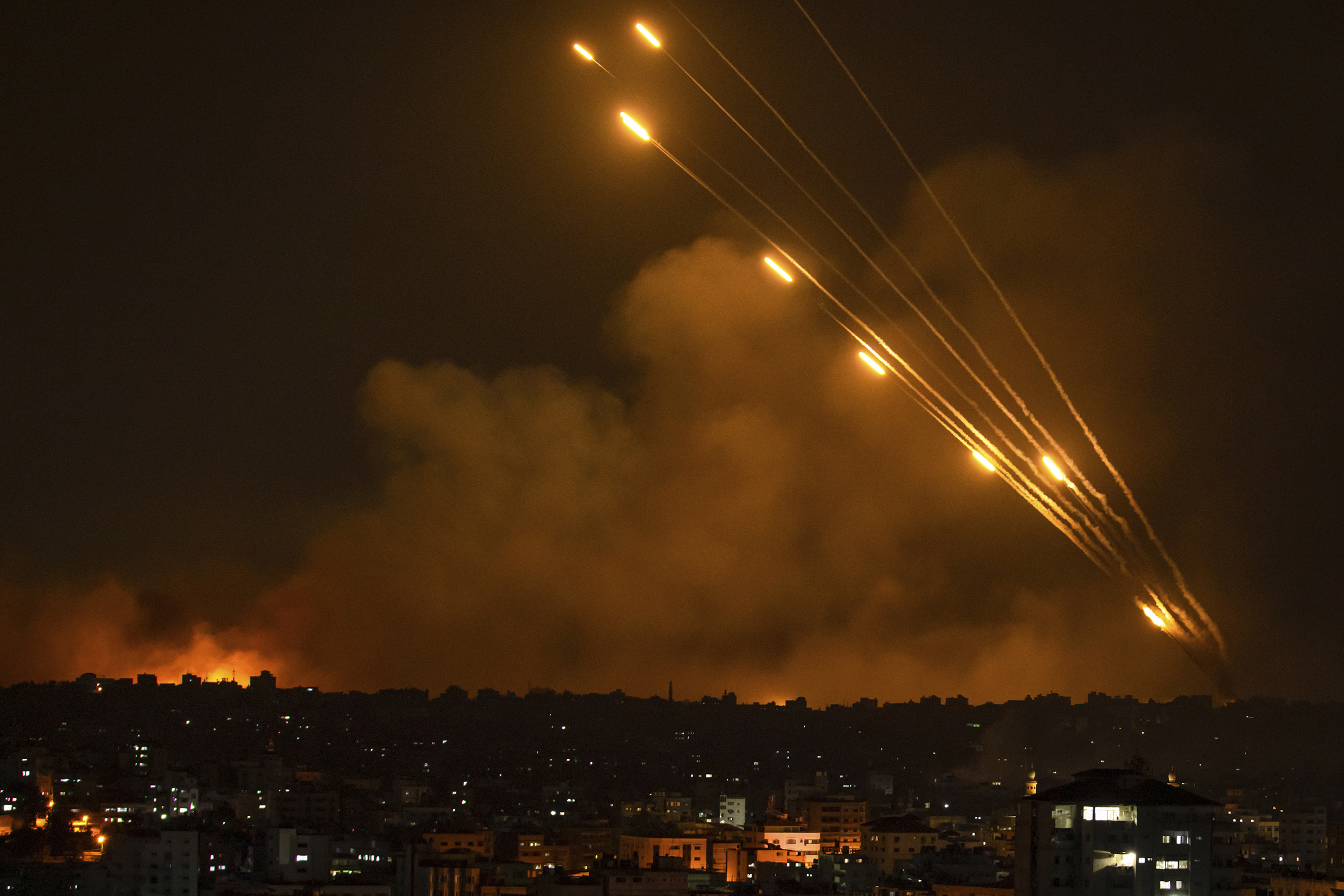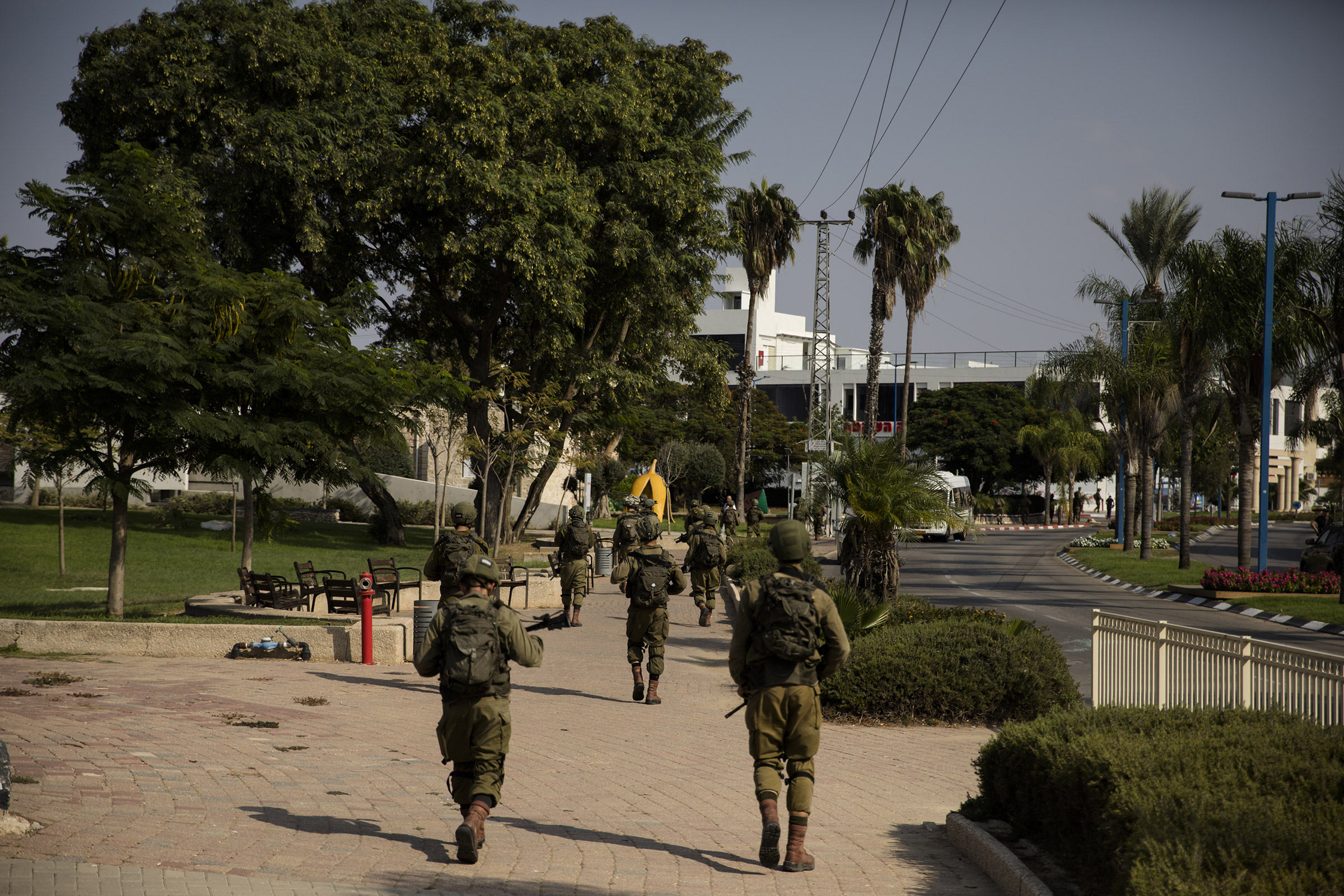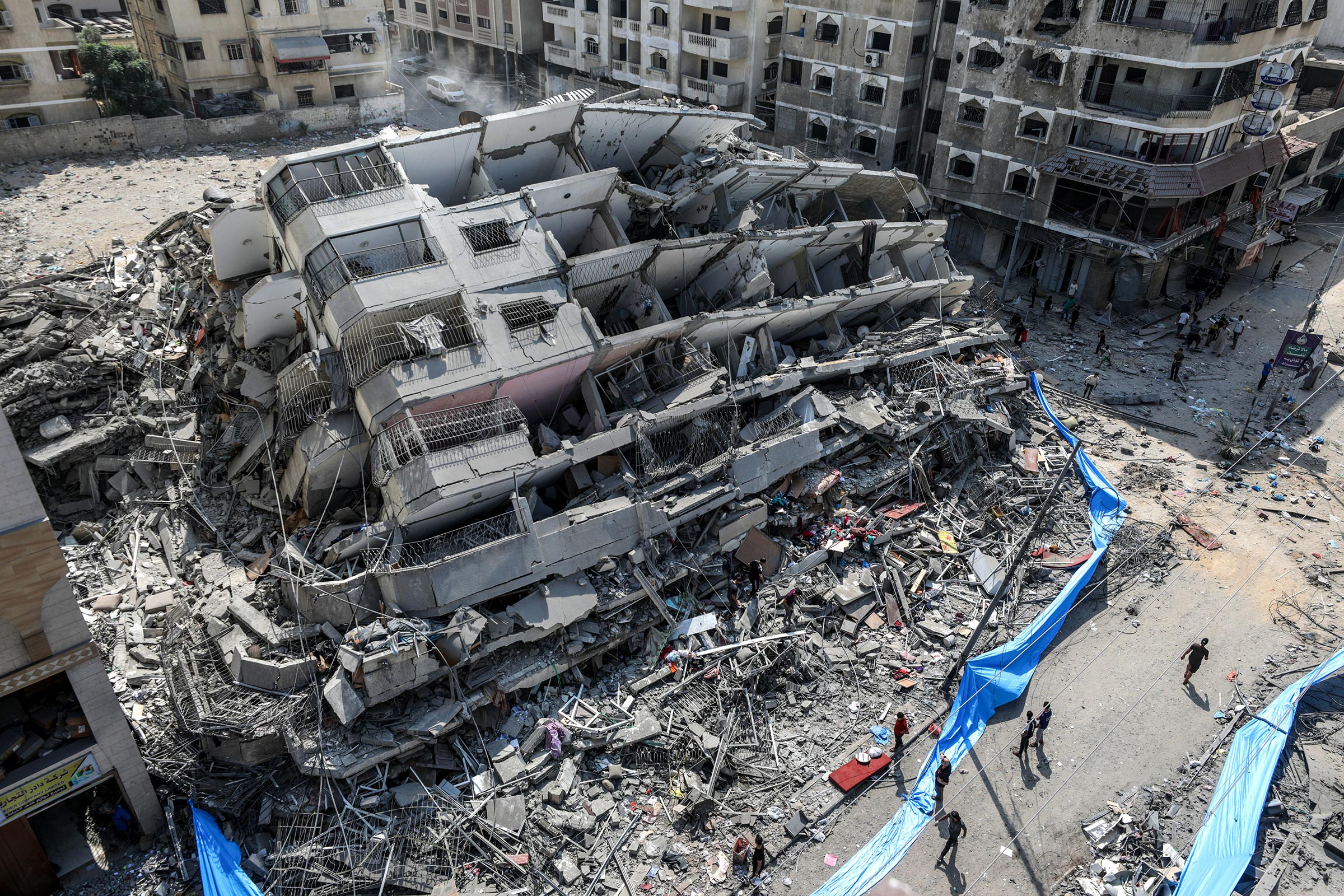Deploying substantial new air and naval forces to the Middle East, President Biden and his top aides are scrambling to deal with twin crises unleashed by the hot war between Israel and Hamas: the possibility that American hostages may have been taken into Gaza along with Israelis during the deadly weekend assaults, and the danger that the conflict could spread in the region, potentially drawing the U.S. closer to conflict.
As Israeli Defense Forces continued to battle Hamas militants in Israeli towns, American officials worried violence could erupt in the West Bank and that Iran-backed forces in Syria and Lebanon may try to open additional fronts against Israel. The Biden administration is also trying to find out just how many Americans may have been taken hostage from a music festival and in other kidnappings during Hamas’s bloody incursion into Israel. Biden spent the day at the White House on Sunday being briefed on the attack and the fallout, calling allies, and instructing the U.S. military to deploy more firepower to the eastern Mediterranean Sea near Israel.
In a phone call with Israeli Prime Minister Benjamin Netanyahu on Sunday morning, Biden expressed "deep sympathy" for the killed, missing, and wounded in Israel and "pledged his full support" to Israel, according to a White House description of the phone call.

Biden told Netanyahu that he had directed the U.S. military to rush equipment and ammunition to Israel to assist the Israeli Defense Forces. The two leaders talked about the hostages taken by Hamas, which include families, elderly people, and young children, the White House said.
Biden Administration officials hope that the show of U.S. military force in the Mediterranean will help deter an escalation of fighting elsewhere on Israel’s borders, including in the occupied West Bank. “What we're really focused on right now is trying to ensure,” said a senior administration official, "that this does not spread to the West Bank. We want to try to make sure this is contained in Gaza, as terrible as the situation in Gaza is.”
A day earlier, Biden had put enemies to Israel, including Iran, on notice. “Let me say this as clearly as I can: This is not a moment for any party hostile to Israel to exploit these attacks to seek advantage. The world is watching,” Biden said, during televised remarks on Saturday.

The U.S. is doing more than watching. The U.S. military is sending ammunition and equipment to the Israeli Defense Forces, and Biden ordered a heavily armed carrier group to change course and move into the waters off the coast of Israel. The naval formation includes the aircraft carrier USS Gerald R. Ford and Ticonderoga-class cruiser USS Normandy, as well as four U.S. Navy destroyers.
The U.S. is also adding aircraft to several fighter jet squadrons already based in the area, the Defense Department said Sunday. Additional fighter aircraft include Air Force F-35, F-15, and F-16 fighter jets as well as A-10 attack jets.
Moving the forces closer to Israel would speed up the response time if the U.S. decided it needed to strike targets in the region or, at some point, wanted to launch a rescue operation for any American hostages held in Gaza.
Defense Secretary Lloyd Austin said Sunday that the deployment of U.S. forces was in response to the Hamas attack on Israel and are designed to “bolster regional deterrence efforts” and underscore the U.S.’s “ironclad support for the Israel Defense Forces and the Israeli people.”

In addition to military assistance rushing to the region, American officials are working to track down reports that Americans were killed or have been taken hostage in the Hamas attacks, including from a large trance music festival. “We have reports that several Americans may be among the dead. We are very actively working to verify those reports. Similarly, we’ve seen reports about, about hostages and there again, we’re very actively trying to verify them, and nail that down,” Secretary of State Antony Blinken said Sunday morning on NBC’s “Meet the Press.”
U.S. intelligence officials are likely reviewing troves of intercepted electronic communications and other material to see what may have been missed in the run up to the attacks, said Michael Allen, a former staff director of the House Intelligence Committee and a former senior official on President George W. Bush’s national security council. “We look at our intelligence holdings to see if there is anything relevant to this, something we may have missed,” Allen said.
Asked if intelligence agencies failed to see the attack coming, Secretary of State Blinken said there would be time for Israeli and U.S. intelligence agencies to see how they missed seeing the planning for the coordinated attacks from Gaza. “In terms of the intelligence, there will be plenty of time in days to come to look and see what anyone missed, what might, what we could have done better. Right now, the focus is on helping Israel, making sure that it has what it needs to deal with this attack,” Blinken said Sunday on CNN’s “State of the Union.”

The deadly attacks could have been partly motivated by an effort to disrupt the push to normalize relations between Israel, Saudi Arabia, and other Arab states, Blinken said. “Certainly, that could have been part of the motivation. Look, who opposes normalization? Hamas, Hezbollah, Iran. So it wouldn’t be a surprise that part of the motivation may have been to disrupt efforts to bring Saudi Arabia and Israel together, along with other countries that may be interested in normalizing relations with Israel,” said Blinken.
U.S. diplomats have been concerned about escalating violence in the region. In the wake of the attacks from Gaza in Israel’s south, Hezbollah and Israel briefly exchanged fire along Israel's northern border with Lebanon. But officials haven’t seen a major escalation. Biden’s national security team also made a blitz of calls over the weekend to high level officials in Saudi Arabia, Egypt, Turkey, Qatar, Oman, the United Arab Emirates, as well as European countries and the Palestinian Authority to try to keep allies aligned.
In the past two days, Biden, Blinken and other senior U.S. officials have worked to press allies and countries in the region to stand up in defense of Israel in the face of the assault on Israel by Hamas.
But the outreach so far hasn't delivered a full-throated condemnation of Hamas and the attacks from Arab states that U.S. diplomats wanted. After Blinken spoke with Saudi Foreign Minister Faisal bin Farhan bin Abdullah on Saturday evening, a statement from the minister stopped short of condemning Hamas, saying only that the Kingdom rejects the targeting of civilians.
More Must-Reads From TIME
- The 100 Most Influential People of 2024
- Coco Gauff Is Playing for Herself Now
- Scenes From Pro-Palestinian Encampments Across U.S. Universities
- 6 Compliments That Land Every Time
- If You're Dating Right Now , You're Brave: Column
- The AI That Could Heal a Divided Internet
- Fallout Is a Brilliant Model for the Future of Video Game Adaptations
- Want Weekly Recs on What to Watch, Read, and More? Sign Up for Worth Your Time
Contact us at letters@time.com